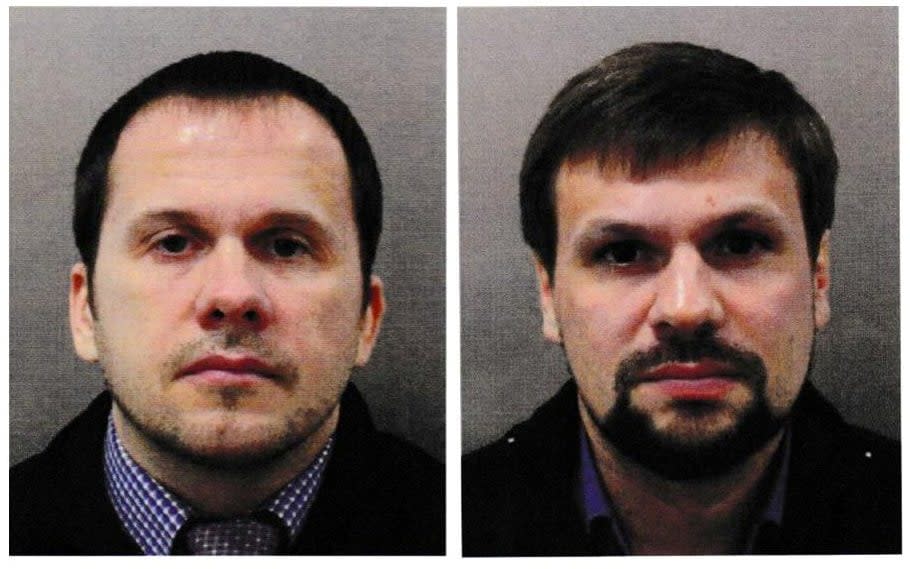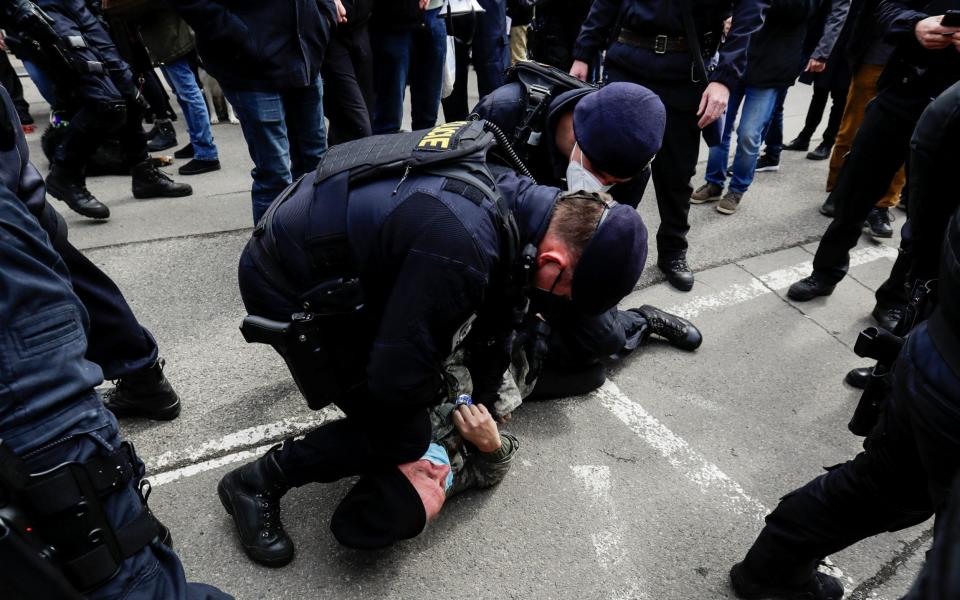Britain 'fully supports' Czech Republic after claims Skripal suspects were involved in fatal blast

- Oops!Something went wrong.Please try again later.
- Oops!Something went wrong.Please try again later.
Britain has said it stands with the Czech Republic in the face of Russia’s “dangerous and malign” operations in Europe, after Prague linked two agents wanted in the UK over the poisoning of Sergei Skripal to a deadly explosion.
The Czech government on Saturday said it would expel 18 Russian diplomats in connection with two explosions at an ammunition dump in 2014, in which two people died.
At the same time, Czech police issued a wanted notice for Alexander Petrov and Ruslan Boshirov, the names used by the agents believed to have been behind the 2018 Novichok poisoning of Skripal and his daughter Yulia in Salisbury.
Czech police said the men were wanted in connection to a “serious crime” and reported that they had been in the country in the days leading up to the blasts in the eastern town of Vrbetice.
“The UK stands in full support of our Czech allies, who have exposed the lengths that the Russian intelligence services will go to in their attempts to conduct dangerous and malign operations in Europe,” Foreign Secretary Dominic Raab said in response to the news.
“This shows a pattern of behaviour by Moscow, following the Novichok attack in Salisbury. My sympathies are with the families of the victims in Vrbetice.”
Mr Raab added in a statement: “We are as determined and committed as ever to bring those responsible for the attack in Salisbury to justice, and commend the actions of the Czech authorities to do the same. Russia must desist from these actions, which violate the most basic international norms.”
Washington also expressed support for “its steadfast ally, the Czech Republic”.

“We appreciate their significant action to impose costs on Russia for its dangerous actions on Czech soil,” the US embassy in Prague said.
The statements came as the EU prepared to address the matter at a foreign ministers’ meeting on Monday. The Czech government said it had informed the bloc and NATO about suspected Russian involvement in the explosions.
Czech authorities said that all of the diplomats to be expelled are members of Russian foreign intelligence agencies.
Moscow has dismissed the allegations as “absurd” and promised reciprocal measures.
The spat, which marks the worst crisis in relations between Prague and Moscow since the end of Communist rule in 1989, comes amid deteriorating relations between Russia and the West.
The US last week expelled 10 Russian diplomats and imposed new sanctions over Moscow’s suspected involvement in the SolarWinds hack on federal agencies, as well as alleged attempts to interfere in the 2020 presidential election.
Moscow in response ordered 10 US diplomats to leave, and hit out at the UK over its support for the US sanctions.
Shortly after the Salisbury poisonings, the investigative group Bellingcat reported that Alexander Petrov and Ruslan Boshirov were assumed names for Alexander Mishkin and Anatoly Chepiga. Both men are officers in the GRU, the Russian foreign military intelligence agency.
The pair later gave an interview to Russian state television in which they claimed to work in the fitness industry and have visited Salisbury as tourists to see the cathedral there.
The UK obtained a European arrest warrant for the men, but did not demand that Moscow turn them over, as the Russian constitution does not permit the extradition of its own nationals. A source told the Russian Interfax news agency at the weekend that Moscow had no plans to hand the pair to Czech authorities.

